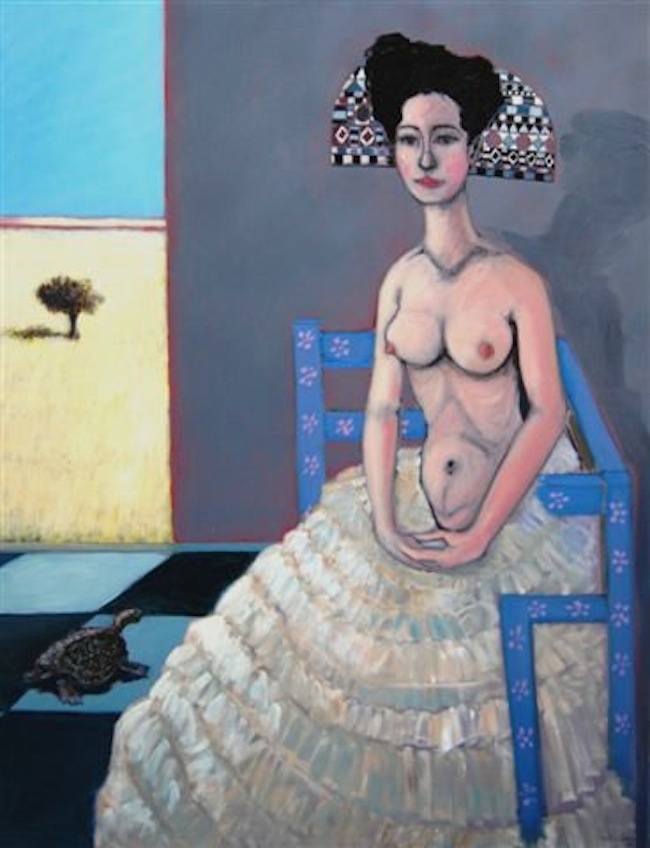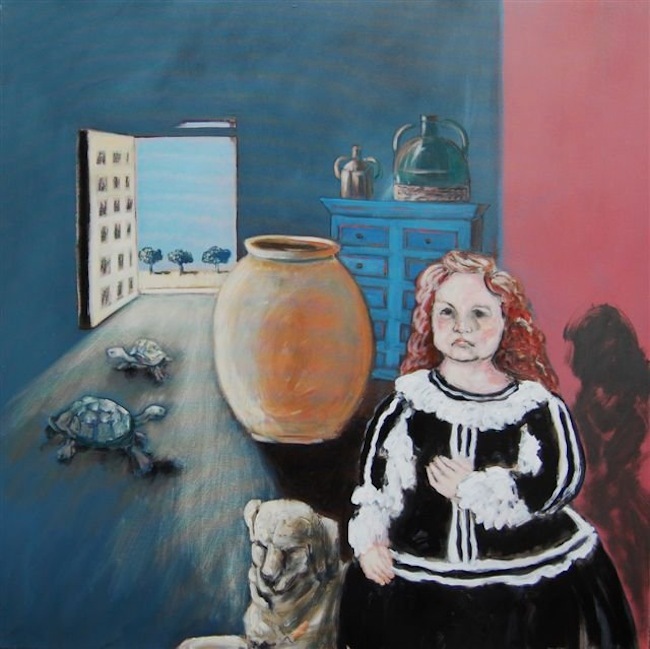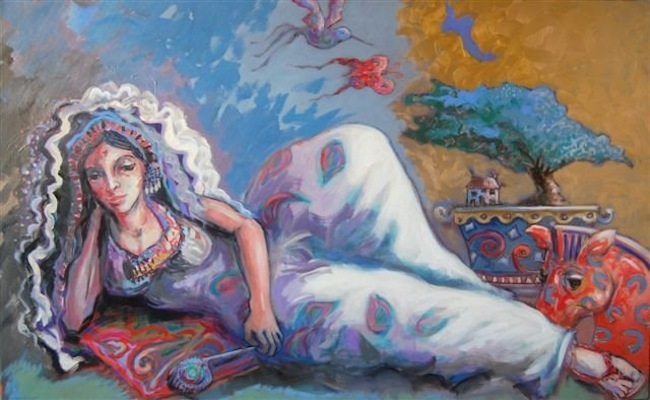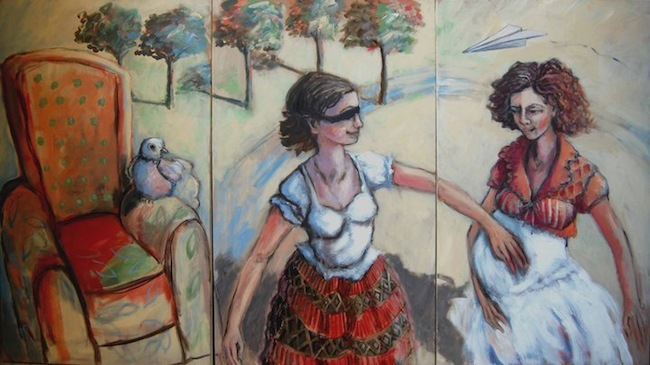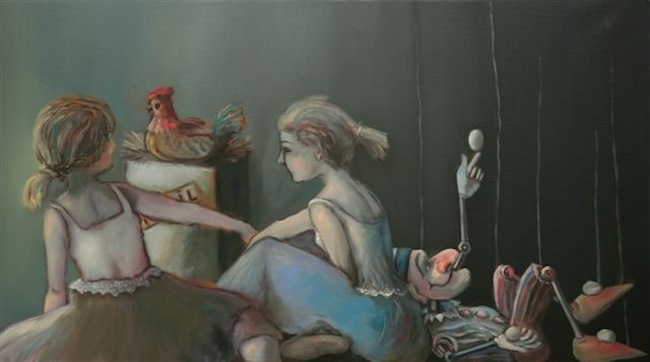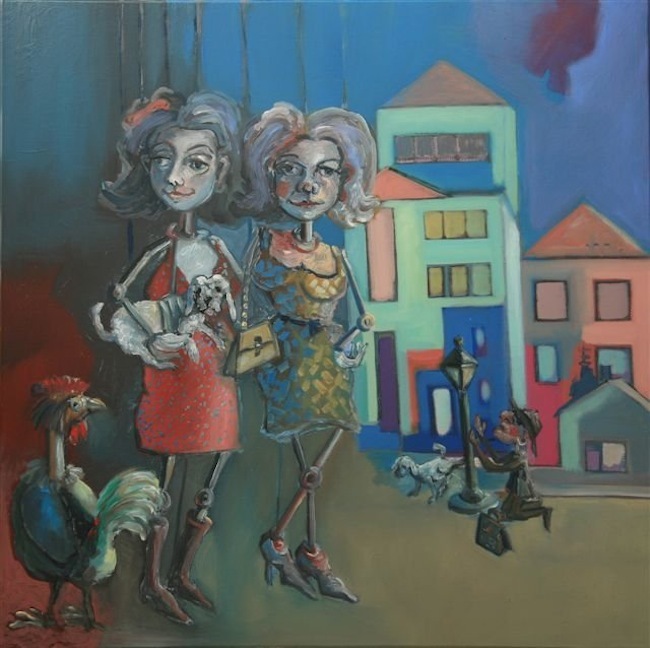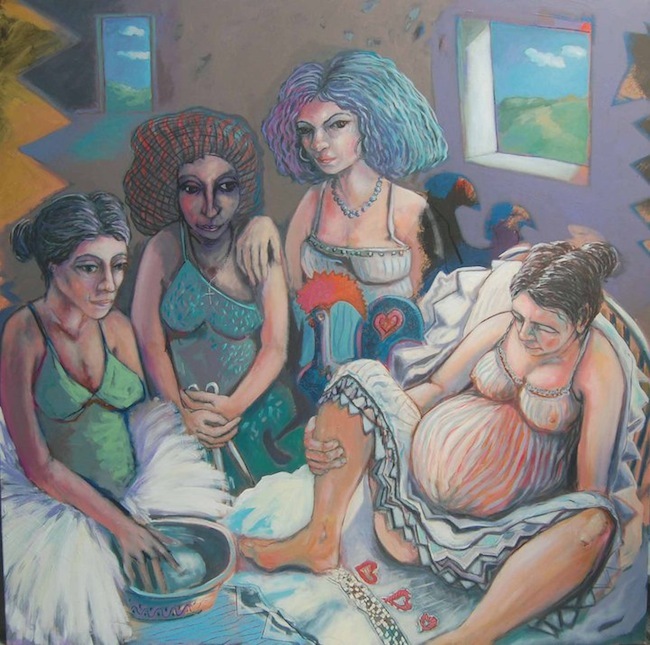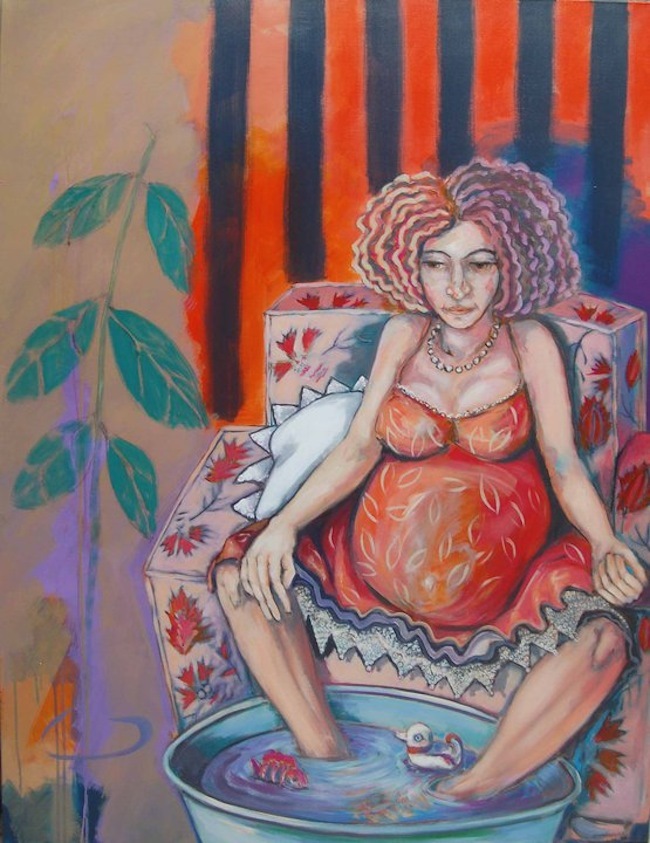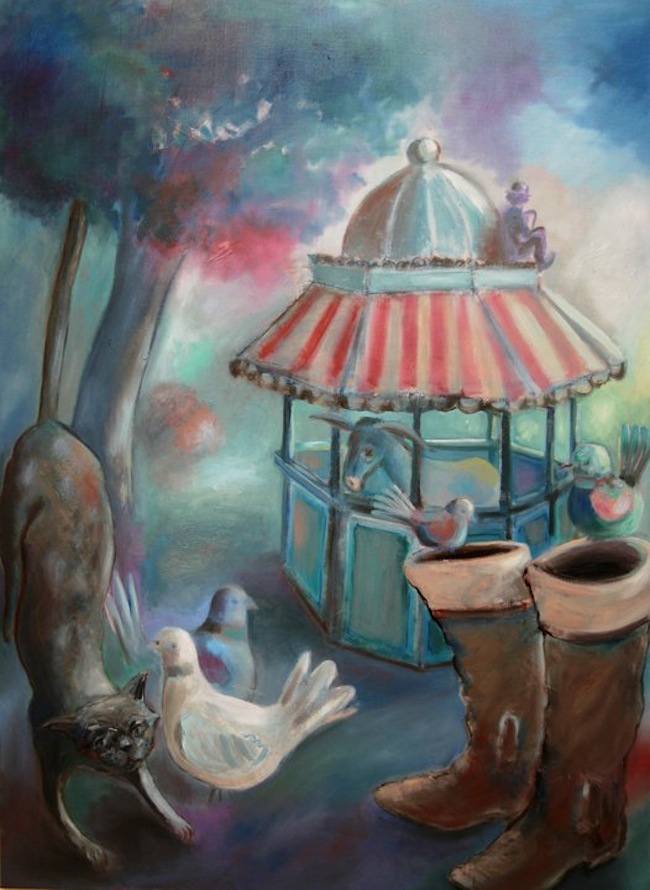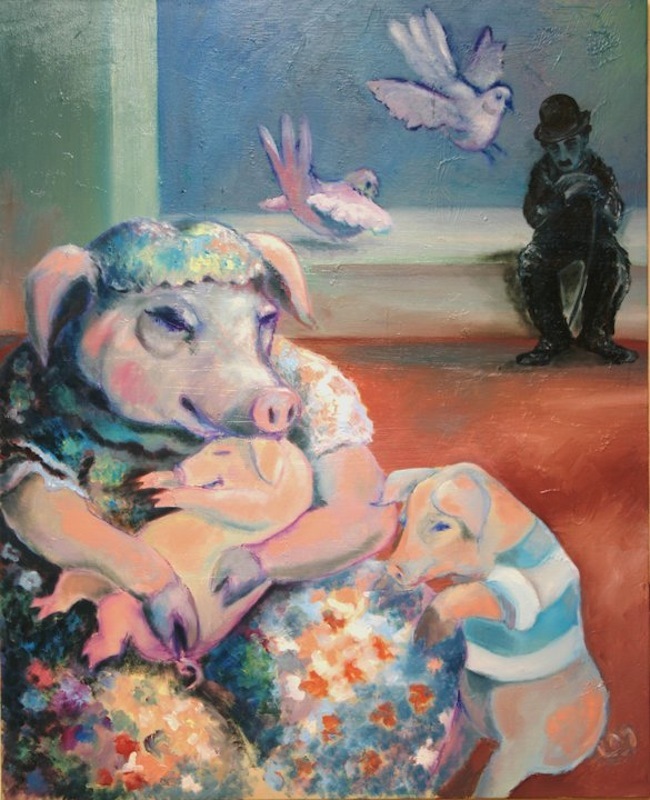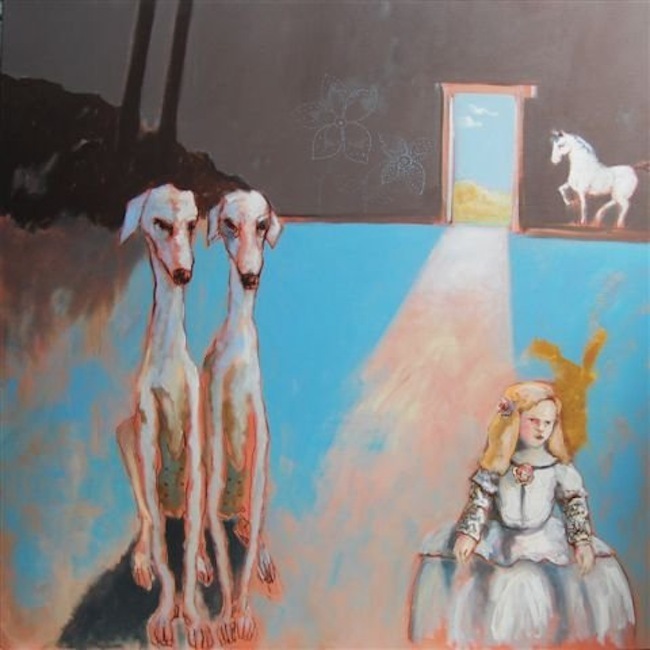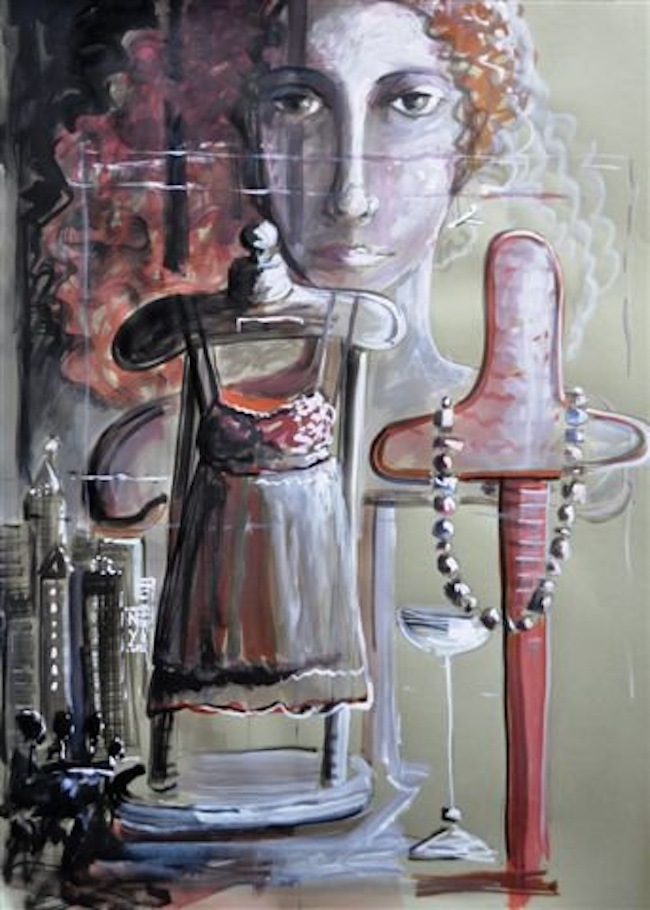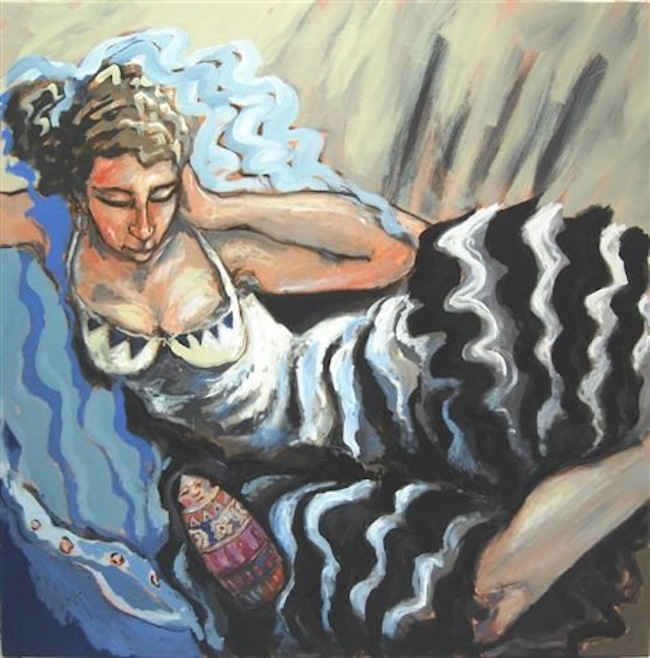Born in Lisbon, Isabel Maria Contreras do Botelho has been painting and drawing for some time. Works in a primate organization as teacher of Arts in Painting and Drawing. Although personally assumed as figurative, her paintings have a personal life, gestural and intuitive but, simultaneously, conceptual and marked by symbologies. Memories and spiritual moods, images of objects seen in the past, in places and moments perhaps imagined. She works with various types of materials, oils, acrylics, pastels, guaches and water colors, indian-inks. Has always followed an independent streak, transforming her artistic creations in very personal scenes, full of meaning. The teaching of Painting has meant a continuous way of “learning through her students…”.
The Azores Islands and Galiza, are in her blood, together with her experiences of Lisbon where she lives, and the Alentejo where she spent large periods of her childhood.
” The painter, who exhibits since 2003, shows a set of works under the subject “The woman”. Even better, the exhibition is a hymn to the woman, not the idealized woman, but the real one, who shapes her day-today life with an opalescent matter, all transformed into a vigorous and at the same time delicate plastic art. Half a century ago, José Régio brought to the portuguese literature the enigma and the cintilation of the feminine universe with “História de Mulheres”; the author of “O Vestido cor de fogo” and “Cântico Suspenso” describes women with sympathy, in a true light, within the mystery of their destinies.
Today the painter Isabel Botelho recuptures that inheritance by showing us a galery of women from the aristocrat to the plebian, who tell us the stories of their lives and their spiritual biographies, though luminiscent paintings in strong colors or, color in its resting state, in drawings of powerful intimacy. These women have a cathartic power, pregnant with movement achieved by the interchange with the viewer, who quests their narrations of unrest or beautitude, dreams or resination: it is the woman who lets herself be contemplated in the intimacy of solitude; it is the virtuous, lascivious woman, in hungry and crisped poses, contorted bodies, showing voluminous nudes, inflationed by eroticism; is, always the woman in her destiny of silence through time and the narration of the feminine condition.”
Teresa Sa Couto

